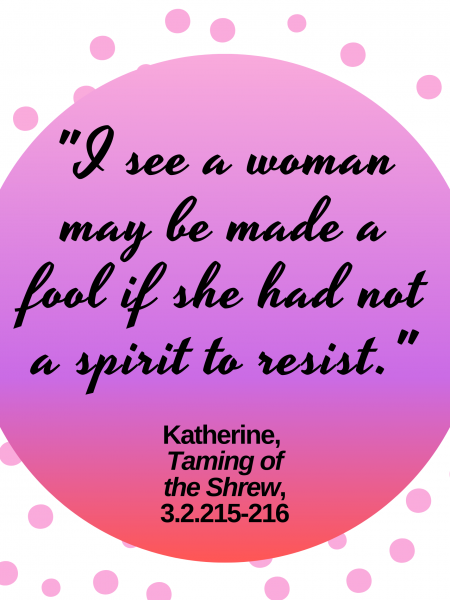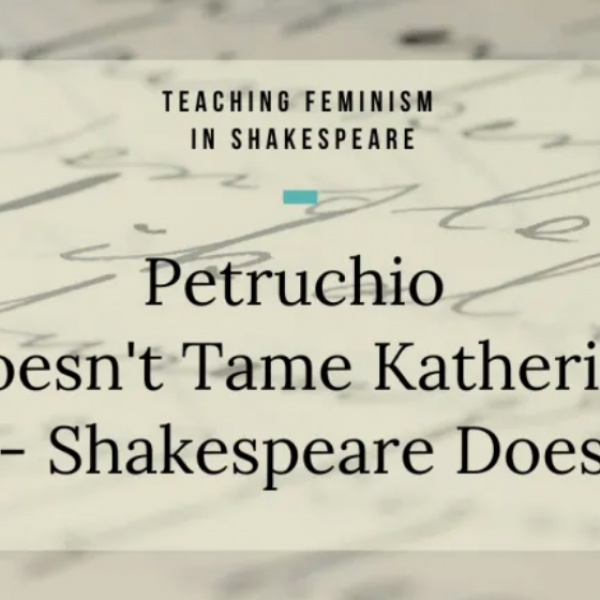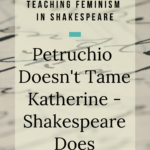The Taming of Katherine
But something new happened the last time I taught The Taming of the Shrew. We were halfway through Act 3 when a student told me they didn’t want to read Katherine anymore because she either doesn’t say anything or is “mousy”.
And you know what – she was right!
We went back and examined Katherine and she does get tamed in the course of the play, but we decided it was Shakespeare taming her. As the writer, he had the ultimate control over her character, her story, and her voice. And he effectively silences her. The old saying is true: The pen truly is mightier than the sword.
I thought I did a good job of examining the feminism and gender roles in The Taming of the Shrew, but it goes to show that our students are thoughtful, insightful, and can teach us.
The Feminist Katherine Dies
One of my favorite quotes from Katherine at the beginning of the play is when she says, “I see a woman may be made a fool if she had not the spirit to resist.” The Taming of the Shrew, 3.2.215-216.

This seems to be the turning point for Katherine. After this, she goes to Petruchio’s home and slowly dies as a character. Gone is the forceful female that I come to love. Gone is the woman who isn’t afraid to tell the truth and say what she really thinks.
And then we devolve into the abuse and humiliation that Katherine suffers at the hands of Petruchio.
I recently read a commentary stating that this was a comedy and we should all just lighten up – I won’t quote it here, because I’m so angry about it. I’ve also read about Shakespeare being a product of his day.
Other Shakespeare Feminist Characters
However, I guess I always had the hope that because Shakespeare wrote some of the strongest female characters in all of literature (think Lady Macbeth, Beatrice, and Viola) that he really was a feminist for his day. But that certainly doesn’t show – not by the end of the plays.
Lady Macbeth – Is basically the leader and controls Macbeth, but in the end, she commits suicide.
Beatrice – In the final scene, as soon as she kisses Benedick, she doesn’t have another line.
Viola – She is shipwrecked, makes her own way as a man and works a servant (rather than seeks for pity as a woman), but in the end, she chooses marriage and is just a different kind of servant.
Looking to the Future
I’m not too sure I’m going to teach The Taming of the Shrew next year.
But I applaud the up and coming female generation of students who recognize that they don’t have to like, agree with, or participate in the silencing of women in literature – no matter how old or how good that literature is considered to be.
Don’t get me wrong, Shakespeare is a classic. But is this something I want to dedicate time to in my classroom?
At the very least, I’ll be looking at different plays. Perhaps The Merchant of Venice? Portia seems like a woman I could get behind – the wisest of them all. (Not sure if I’m up the to the prejudice in the play, but that is a whole different conversation. Why are you so difficult William Shakespeare?!)



